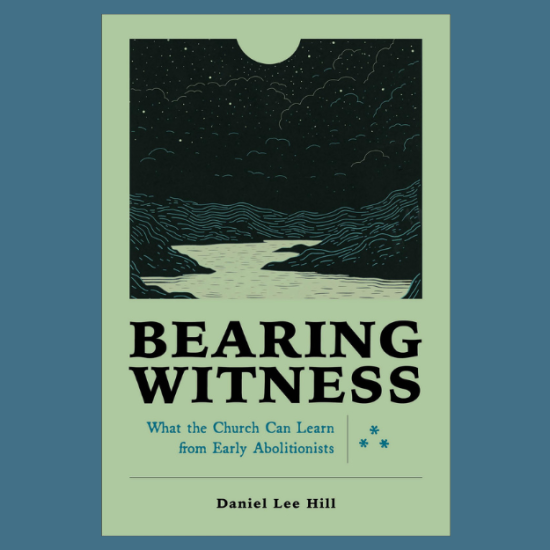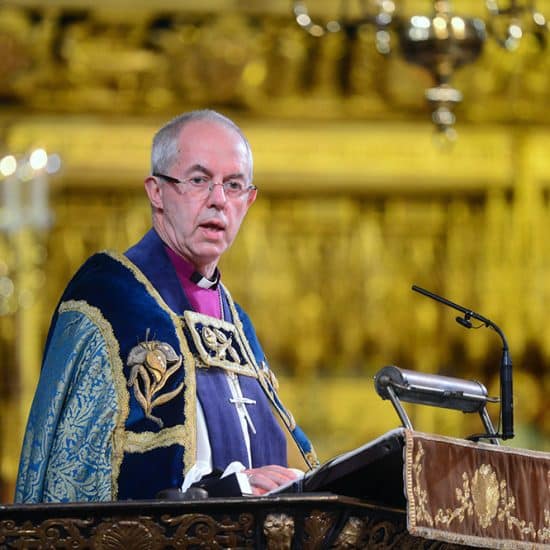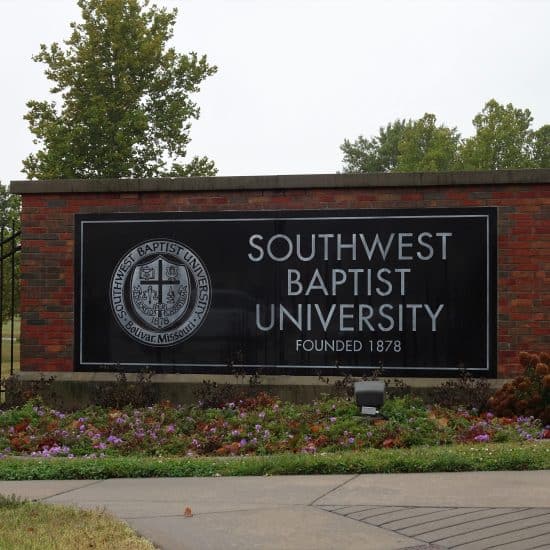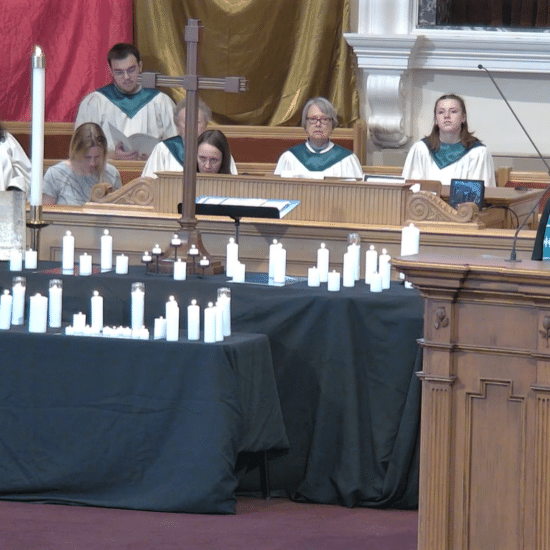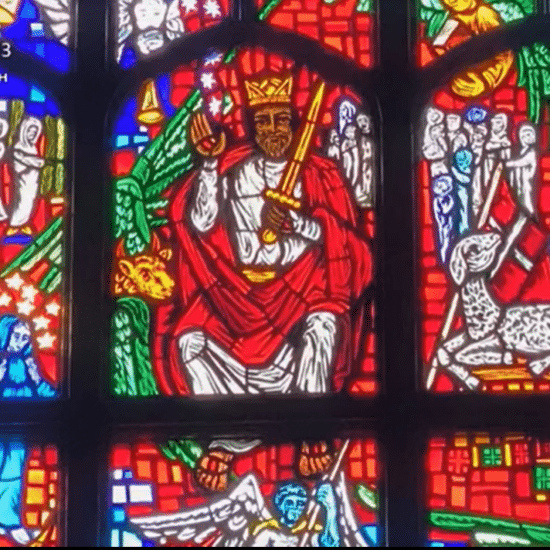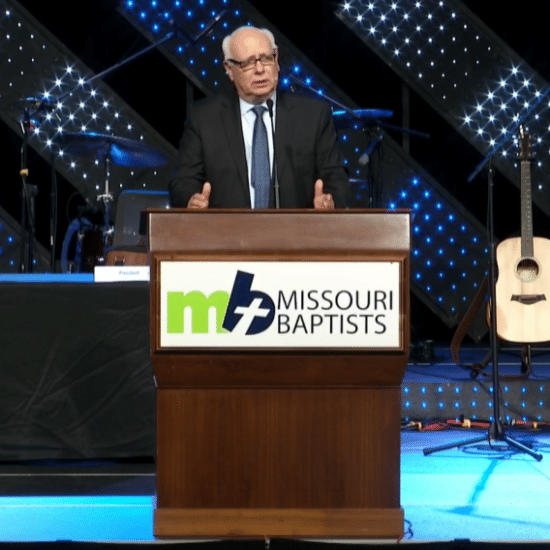
Last week, two stories dominated our web statistics: a Southern Baptist Theological Seminary senior professor defending slavery and Southwest Baptist University requiring religion professors to affirm new theological documents. At first blush, the stories seem unrelated — other than they both involve a Baptist school. But in reality, they represent the same problem: reading the Bible like enslavers.
Tom Nettles, a senior professor at SBTS, wrote multiple essays recently arguing against removing the names of SBTS’s enslaver founders from buildings and other places of honor on campus. But he does so in part by arguing that being “antebellum slave owners” and even “post-bellum white supremacists” doesn’t mean SBTS’s founders were “necessarily heretical.” And he grounded his justification of slavery “in biblical infallibility and in the revelatory ministry of the apostles.”
Nettles reads the Bible much like his spiritual ancestors did as they pointed to passages like Ephesians 6:5-8, Colossians 3:22-24, Titus 2:9-10, and 1 Peter 2:18-25 to justify slavery. Like them, Nettles argued enslaved persons should submit to their enslavers and not try to gain freedom by unlawful means.

Brian Kaylor
Nearly 500 miles away, professors at SBU are being told they must sign three new documents in addition to the Baptist Faith & Message of 2000. The creedal push comes amid a nearly two-year conflict as some Missouri Baptist Convention leaders push for theological changes at the school. Among those who’ve argued for such changes at SBU are … Nettles.
After SBU fired a religion professor for violating the faculty handbook during efforts to push out other religion professors at the school, Nettles wrote a letter supporting that professor, calling for “a close investigation of the doctrinal stance of some other professors,” and criticizing the school for not having a confessional statement to which professors must adhere.
“For years I have been active in seeking to promote positive doctrinal fidelity and ex corde [from the heart] affirmation in Baptist Institutions,” he wrote as he urged SBU to more strongly push “the inerrancy of Scripture” and “confessional orthodoxy.”
With the MBC’s pushing changes through trustees, the school has followed Nettles’s advice in requiring affirmation of not only the BF&M 2000 but also the 1978 Chicago Statement on Biblical Inerrancy, the 1988 Danvers Statement on Biblical Manhood and Womanhood, and the 2017 Nashville Statement on sexuality. Not only does this push a view of inerrancy that Nettles invokes to defend slavery, but the Danvers Statement also reads the Bible in the same way as enslavers did.
To justify a view of gender relations that treats women as unequal and subservient to men in families, churches, and elsewhere, the Danvers Statement cites Ephesians 5:21-33, which is just before verses used by enslavers to justify slavery. And the Statement cites Colossians 3:18-19, which is just before verses used by enslavers to justify slavery. And the Statement cites Titus 2:3-5, which is just before verses used by enslavers to justify slavery. And the Statement cites 1 Peter 3:1-7, which is just after verses used by enslavers to justify slavery.
 Here’s the rub: to read those passages as the Danvers Statement interprets them necessitates reading the nearby verses to justify slavery. To look at those passages and affirm the theology of the Danvers Statements but speak against slavery is hermeneutically inconsistent and morally hypocritical. We can’t read one verse literally with no consideration of societal context and then explain away the other verse based on societal context — especially when the biblical writers explicitly connect the two sections with language like “in the same way.”
Here’s the rub: to read those passages as the Danvers Statement interprets them necessitates reading the nearby verses to justify slavery. To look at those passages and affirm the theology of the Danvers Statements but speak against slavery is hermeneutically inconsistent and morally hypocritical. We can’t read one verse literally with no consideration of societal context and then explain away the other verse based on societal context — especially when the biblical writers explicitly connect the two sections with language like “in the same way.”
To sign the Danvers Statement is to do more than affirm a specific ideology about men and women. It is to read the Bible like an enslaver.
But the Bible doesn’t actually affirm slavery. Many southern White preachers tried to claim it did by taking a few verses out of context, but Christians in the North and other countries — as well as Black Christians in the South and elsewhere — clearly saw a different message in the scriptures. And enslavers actually did, too.
Although they claimed the Bible supported slavery, the enslavers proved they didn’t really believe that as they literally chopped up the Bible to give the enslaved only parts that didn’t include verses that might teach that slavery is morally wrong. In one such example, about 90% of the Old Testament was removed along with about 50% of the New Testament. The enslavers had to do quite a bit of violence to the Bible to justify their violent and evil institution of slavery.
With the theology of the Danvers Statement, that violent abuse of the Bible is continued. The Civil War militarily and politically ended slavery. But we still need to be, as Baptist author Jonathan Wilson-Hartgrove urged us, “finding freedom from slaveholder religion” passed down to us. Professors at SBU helped me on that journey.
Oddly, Nettles attempted to defend SBTS’s enslaver founders by insisting their theology didn’t change even as slavery became outlawed.
“The elimination of slavery by the Emancipation Proclamation and the South’s defeat in the Civil War, did not change the theology of Boyce and the seminary cohort in any of these truths of revelation,” he wrote.
That is, the only reason, according to Nettles, that the SBTS founders stopped enslaving people was the government wouldn’t let them anymore. No repentance. No new way of reading the Bible to see the heresy of their ways.
But that’s not good enough. For too long it has seemed the approach to biblical interpretation in many churches and denominations has been to merely tack on amendments to our stories about the Bible. “P.S. keep reading the Bible the same way, but now no more supporting slavery.” “By the way, keep reading the Bible the same way, but we should probably stop slaughtering Native Americans.” “P.S. keep reading the Bible the same way, but let’s stop lynching Black people.”
But if we read the Bible in such a way that we think slavery or genocide or Jim Crow is okay, then we need to not just change our positions on those issues but also need to figure out how to read the Bible differently. We need to stop reading the Bible like enslavers.

